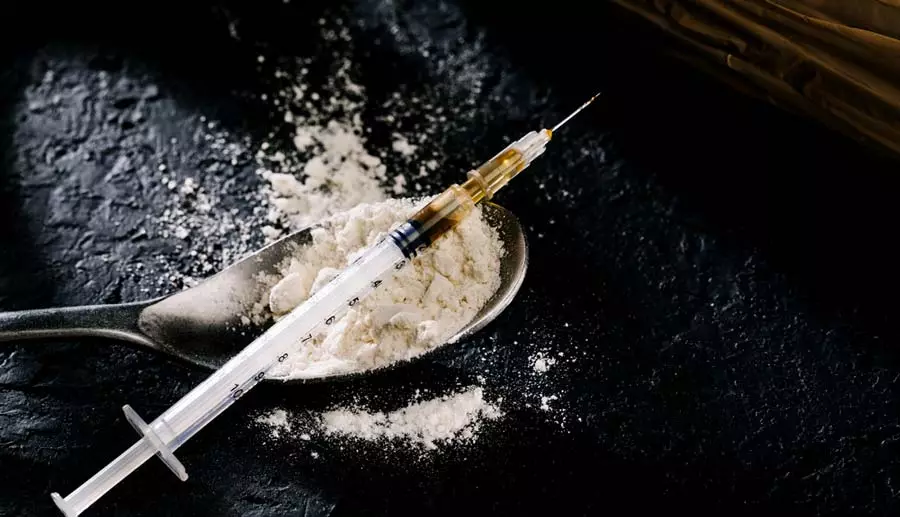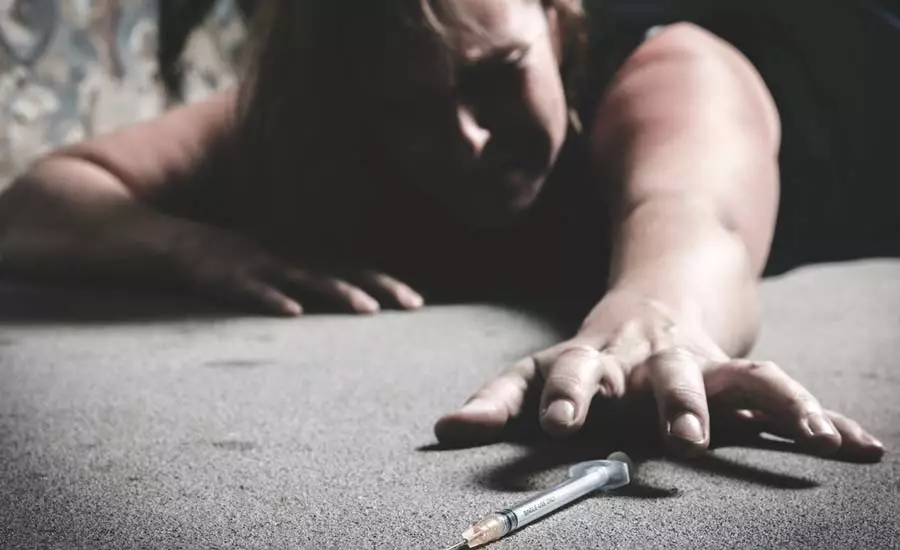Knowing How to Help a Loved One with Opiates
Heroin is a highly addictive drug that is wreaking havoc on communities all over the world. The opioid epidemic has taken hold, and the number of people who are struggling with the side effects of heroin addiction is at an all-time high.
The dangers of heroin addiction are numerous and far-reaching. Physically, the drug can cause a range of health problems, including collapsed veins, infections, liver disease, and even death.
In addition to physical and mental health problems, heroin addiction also has a significant impact on a person’s life. Relationships can be ruined, careers can be destroyed, and finances can be drained.
If you have a loved one who is struggling with a heroin addiction, it’s important to educate yourself about the dangers of the drug and the nature of addiction. By having open and honest conversations, offering support and encouragement, and seeking professional help when necessary, you can help your loved one overcome their addiction and reclaim their life.
Keep reading to learn more about heroin addiction, the side effects of heroin, how you can help your loved one with treatment, and how Catalina Behavioral Health can help!
What is Heroin?

Heroin is a powerfully addictive opioid drug that comes in multiple forms, including white or brown powder and black tar heroin. The white or brown powder is typically composed of a naturally occurring substance extracted from the opium poppy plant. Black tar heroin, on the other hand, is made up of a black sticky substance that has been processed with various chemicals.
When heroin enters the body, it is quickly converted into morphine and binds to the body’s opioid receptors. This binding produces a powerful and euphoric high that is often followed by a feeling of warmth and comfort. However, the effects of heroin abuse can also be dangerous, as it slows down the heart rate and breathing, which can lead to unconsciousness and death.
In terms of the immediate side effects: at its core, heroin is a central nervous system depressant which means it slows down brain activity associated with stress responses, breathing, and heart rate – among other things.
24 Hour Heroin Addiction Treatment Options
What are the Effects of Heroin Abuse?
Heroin is a powerful opioid drug; users snort, inject (IV drug), or smoke heroin to feel its effects. It stimulates the reward system in the brain, quickly crossing the blood-brain barrier and leading to intense feelings of pleasure and an incredibly high risk of addiction. Unfortunately, over time, heroin abuse and drug use can lead to severe health issues with both physical and psychological symptoms.
The Most Common Signs and Symptoms of Heroin Addiction
If you suspect someone you know might be addicted to heroin, it’s important to understand the signs of heroin use and know the symptoms of the addiction. Here are some of the most common ones:
Physical Dependence
Being physically dependent on heroin occurs when the body adapts to the drug and can no longer function normally without it. Physical dependence can lead to increased tolerance, where the user needs more and more of the drug to achieve the same effects.
Psychological Dependence
Psychological dependence on heroin is characterized by an intense craving for the drug. This craving can be triggered by a variety of factors, such as stress, anxiety, or even the time of day. A person who is psychologically dependent on heroin will have a hard time quitting, even if they want to, because of their intense craving for the drug.
Uncontrollable Drug Seeking Behaviors

Once someone is addicted to heroin, they will exhibit behavioral symptoms, like uncontrollable drug-seeking behavior. This could include going to great lengths to obtain the drug, even if it means putting themselves or others in danger.
For example, heroin users may begin manipulating family members, stealing money, and doctor shopping. They may also start to neglect other important aspects of their life, such as work, relationships, or even personal hygiene.
The Unpleasant Nature of Opiate Withdrawal Symptoms
When someone who is addicted to heroin tries to quit, they will experience unpleasant withdrawal symptoms. During withdrawal, heroin leaves the body and causes many unpleasant symptoms.
The onset of heroin withdrawal symptoms can begin as soon as within a few hours of the last heroin use. This is when the drug starts to leave the body, and the body starts to experience physical and psychological changes as a result. During this time, individuals may experience symptoms such as anxiety, muscle aches, insomnia, and flu-like symptoms such as sweating, chills, and a runny nose.
As the heroin withdrawal process continues, symptoms may intensify, peaking around 72 hours after the last heroin use. This is when individuals may experience the most severe symptoms, including abdominal cramping, diarrhea, vomiting, cold flashes, warm flushing, and other physical symptoms and intense cravings for the drug. During this time, a heroin user may feel extremely restless, anxious, and irritable, and may have trouble sleeping.
After the peak of heroin withdrawal symptoms, individuals can expect a gradual decrease in symptoms over the next few days. However, some symptoms may persist for several weeks, including depression, anxiety, and insomnia.
Heroin Overdose: Risks and Reality
Heroin overdose is a serious and potentially life-threatening condition. It occurs when a heroin user takes too much of the drug, leading to respiratory depression and a slowed heart rate. Common symptoms and signs of a heroin overdose include:
- Bluish skin and lips
- Slow and shallow breathing
- Pinpoint pupils
- Unconsciousness
- Loss of pulse or respiration
Causes and Risk Factors for Substance Abuse: Heroin

Understanding the causes and risk factors of heroin addiction can help prevent it and provide support for those who are struggling. When understanding heroin addiction, learn about the causes, as understanding the causes and risk factors of heroin addiction can help prevent it and provide support for those who are struggling.
- Genetic Predisposition: Having a family member who has suffered from drug use or heroin use and addiction can lead to a greater risk of developing addiction – making it important that families are aware of individual genetic makeup.
- Mental Health Disorders: Those suffering from mental health conditions and mental illnesses such as depression, anxiety, or post-traumatic stress disorder are more likely to struggle with drug use since they may be seeking relief from their symptoms through drugs like heroin. Co-occurring disorders – the presence of a mental illness and an addiction – are common.
- Peer Pressure: Young people in particular who feel pressure to fit in among their peers may find themselves using heroin and other drugs before they can even realize how dangerous they can be.
- Availability: Easy access to opioids and other drugs is often one of the most commonly cited causes of heroin addiction – especially when prescription pills become hard to obtain due to restrictions on availability.
- Trauma/Adverse Childhood Experiences: Those who suffered childhood trauma or neglect may turn to drugs such as heroin in order to help them cope with these painful experiences, which in turn can lead to heroin addiction.
Get Help with Heroin and Begin Recovery Now!
Get Help with Opiate and Heroin Addiction at Catalina
Catalina Behavioral Health is a leading provider of substance abuse treatment and mental health services. We offer a range of evidence-based programs and services to help individuals struggling with heroin abuse and other drug abuse. Our experienced and compassionate staff is dedicated to providing the highest level of care to help individuals overcome addiction and achieve lasting recovery.
If you or someone you know is struggling with heroin abuse or other drug abuse, reach out to Catalina Behavioral Health for help. Don’t wait; pick up the phone and take the first step toward recovery today.
All phone calls are completely confidential, so please reach out to get options today!





